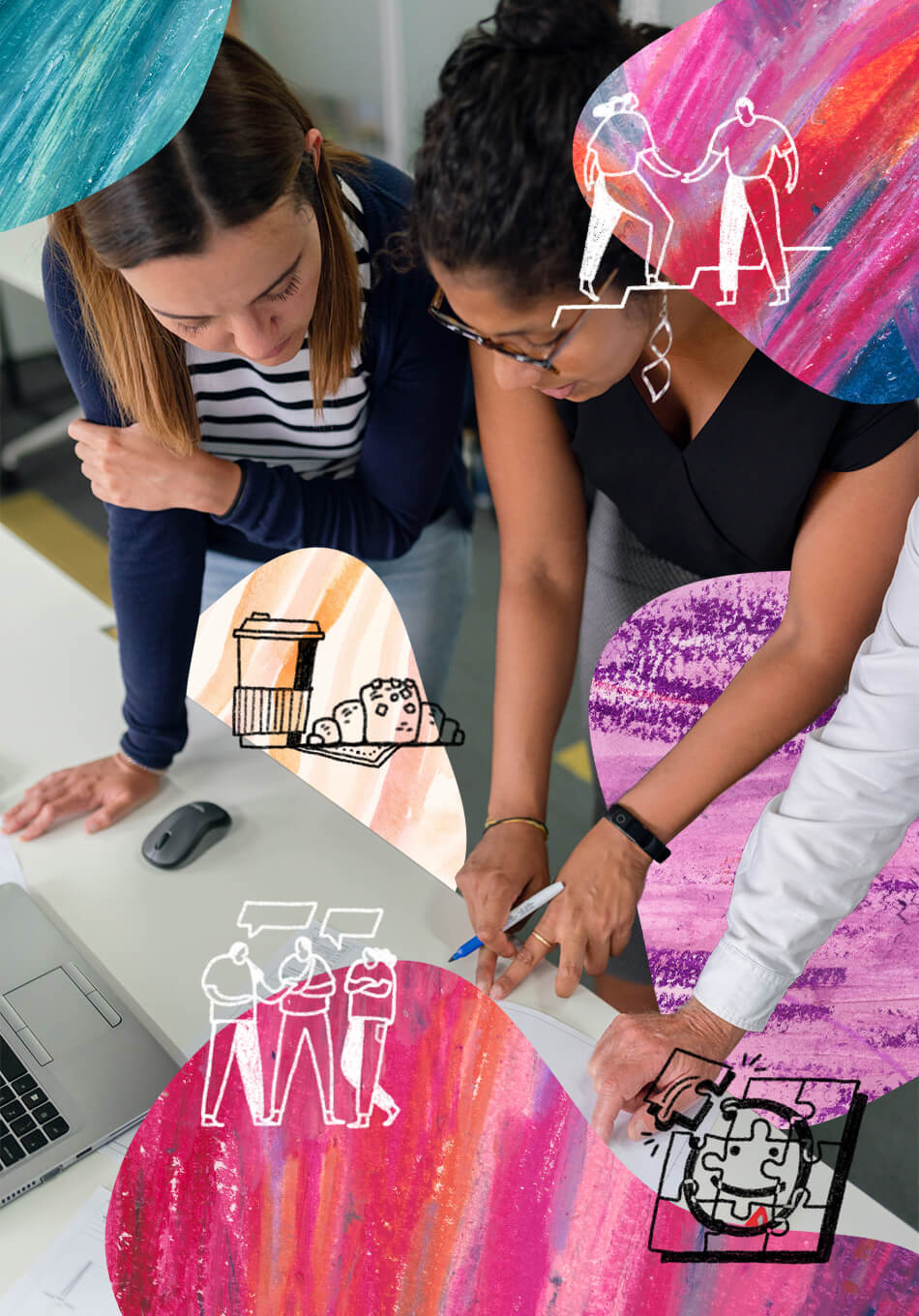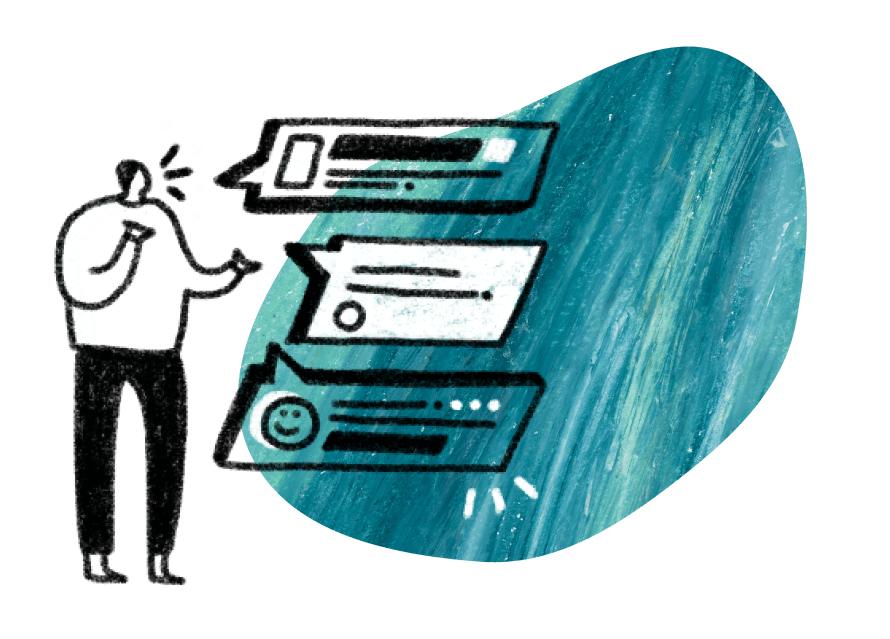Hi, I’m Rachell. 👋 You can call me a copywriter, a content marketer, or a storyteller. But at my core, I am a learner. That’s why I joined User Interviews—to continue learning and to share what I learn with others.
I love diving deep into understanding why people think, behave, and say things the way they do. These nuances are what make the human experience unique, because everyone has a different story to tell. I’m here to learn about doing good research, good design, and good marketing—and the role that different people’s stories and needs play in all three of those things.
It’s only been a week since I’ve started at User Interviews—but here are the top three ways user research already helps me become a better storyteller.
1. UXR is humanizing.
The beauty of storytelling is that there’s no wrong answer. You can add as much detail or emotion as you want. But the one thing that makes stories impactful is how you establish understanding with your intended audience. Communicating your message in a way that resonates with your audience is crucial to evoking the right reactions and inspiring the right actions.
That’s where user research comes in.
User insights help me understand what topics people care about and what language they use to talk about them.
In a podcast conversation about user-focused writing, Yuval Ketscher, the founder of the UX Writing Hub, says:
“We need to do some research to understand exactly how people like to be communicated in that specific context. And in order to learn, we must do research.”
In my experience as a copywriter and content marketer, I believe that 90% of writing is research-based. There’s no way I could pull off a high-value piece of content without doing my due diligence to research both the topic and the people I’m writing for.
How will I know if the people I write for care about what I'm talking about? How will I know what language will stir up emotions and make an impact? The answer is research.
UXR never fails to surprise me with new insights and I’m excited to continue applying these learnings to my skills as a writer.
2. User research is insightful.
When I’m faced with a new challenge, I find that the hardest thing to do is to take action. It’s easy to stay stuck in a state of analysis paralysis and ponder over what is the best path to take.
When you’re feeling overwhelmed with uncertainty, user research helps us embrace ambiguity with confidence. A great example of this is the sudden onset of COVID-19, which changed customer behaviors and needs all over the world.
There’s no doubt that the pandemic completely shifted society’s perception of social connectedness, mental health, purchasing behavior and more. Let’s be real—it altered almost every aspect of our lives!
Many of the businesses that survived and thrived over the past few years have done so by paying attention and responding to rapidly evolving user behaviors and needs.
User needs change rapidly (even in the best of times), and companies can and should lean on user research to accommodate these changes.
According to anthropologist and user researcher Megan Mclean at Spotify:
“The ways in which users interact with our products are shaped almost entirely by experiences outside of our products… We don't really stop to think about this broader world, this broader digital world, that products are within.”
UXR helps expand our understanding of our audience.
By engaging with and inquiring about our users’ experiences on a deeper level, we’re able to share stories and resources that we know resonate with their needs—not just as a customer of our product, but as a human with unique experiences and idiosyncrasies.
3. User research is humbling.
We think we know what our users want. In reality, we can only make assumptions.
Most company decisions are made after coming to a consensus through meetings. But how can a small group of people decide what is best for their users without user insights?
The same goes for storytelling and creating content tailored to users’ interests. Writers like myself can use marketing analytics tools to understand how content is performing; but to know whether it’s truly relevant, useful, and valuable for our audience, we need to gather audience insights.
The benefits of user research and customer feedback for content is manifold. For example, research can tell us about our audience’s unanswered questions, search intent, content preferences, internal values and more.
But most importantly, the practice also sheds light on the limitations of our perspective as content or product marketers.
Writing content or sharing stories that we think are best for our audience isn’t enough. If our content recommendations don’t match our audience’s search intent or topics of interest, then who are we really writing for? Ourselves or the audience?
User research is humbling because it teaches us that our users’ perspective is more important than our own opinions.
The very first principle in Google’s guiding philosophy is to:
“Focus on the user and all else will follow.”
Everything we do, from creating new research guides to improving a feature in our participant recruitment tool, is designed to serve a greater purpose than our own internal goals. User research empowers companies to achieve their bottom line goals while addressing their users’ greatest needs.
This is why I think user research serves as the connective tissue between companies’ business goals and user-focused experiences. It’s a practice that balances users’ needs and wants without sacrificing business performance. User research is the key to help us shift our focus to a purpose that’s not one-sided, and I’m grateful to be a part of an organization that sees the value of doing so.
Sharing user insights, one conversation at a time
It’s not easy to put down your ego and accommodate others’ needs and wants. Not every company can do that, but I’m learning that User Interviews does it well.
It’s only been a week since I started at User Interviews, but I’ve witnessed this “low-ego” mindset trickle down from top to bottom, through the conversations I’ve had with folks around the organization.
Everything we do is to serve other user researchers and PwDRs (people who do research). When we say we want to empower others with simplified user testing and research, we mean it.
At User Interviews, we’re transparent about our mission and how it serves the greater user research community. My personal goal here is to continue learning about user research, synthesize what I learn into useful and digestible content, and to share them with all of you.
Get in touch!
Have a topic you want us to cover? I’m all ears. 😊 Send me an email at rachell@userinterviews.com to send me your thoughts, recommendations, or just to start a conversation about user research.
Just getting started with user research? Our UX Research Field Guide is a great resource to help you get started. If UX research is already your forte, join us on our mission to bring user research to the forefront of organizations everywhere.














.jpg)





